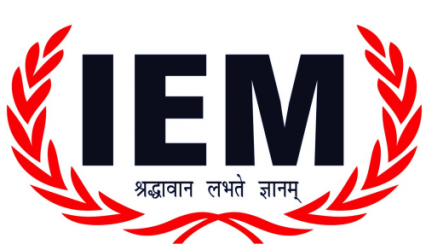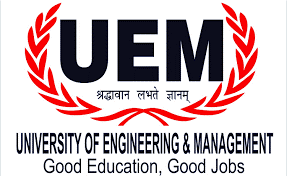
Keynote Speakers
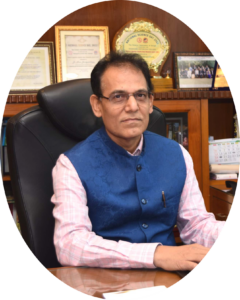
Dr. Arun Bandyopadhyay
Director - Gujarat Biotechnology University (Gujarat, India)
Former-Director CSIR-IICB, Kolkata, India
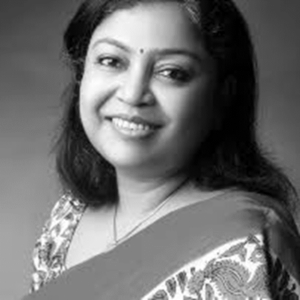
Dr. Sulagna Basu
Scientist G
ICMR - National Institute for Research in Bacterial Infections, India

Dr. Swastika Paul
Co-founder & Chief Scientific Officer at ExSURE, India

Dr. Paul Williams
Emeritus Professor of Molecular Microbiology, Faculty of Medicine & Health Sciences, University of Nottingham, UK.
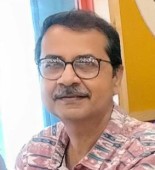
Dr. Gaurab Gangopadhyay
Professor, Biological Sciences Bose Institute, Kolkata, India
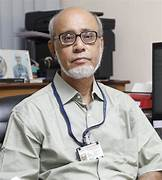
PARTHA P. MAJUMDER, PhD, FNA, FASc, FNASc, FTWAS
Distinguished Professor, John C. Martin Centre for Liver Research & Innovations
Emeritus Professor, Indian Statistical Institute, Kolkata
Adjunct Faculty Member, Indraprastha Institute of Information Technology Delhi
Council Member, Human Genome Organisation
Member of Technical Advisory Groups on 'Genomics' and 'AI & Health', World Health Organization
Formerly (7/2020-6/2025) National Science Chair, Government of India
Founder, National Institute of Biomedical Genomics INDIA
Partha P. Majumder is a Distinguished Professor of the John C. Martin Centre for Liver Research & Innovations, Kolkata; and, an Emeritus Professor of the Indian Statistical Institute. Until recently, he was a National Science Chair in India. He has made significant contributions to human-, statistical- and population genetics and genomics. He has developed methodologies for mapping human disease genes, identified genomic factors underlying many diseases notably oral cancer, and has reconstructed the ancestries and relationships of ethnic populations groups of India and Asia using genomic methods. He has immensely contributed to capacity-building in human and statistical genetics in India. He has founded the National Institute of Biomedical Genomics, India. He is an elected Fellow of all the three national science academies of India, The World Academy of Sciences (TWAS) and the International Statistical Institute. He has served as the President of the Indian Academy of Sciences and of the West Bengal Academy of Science & Technology. He is a Member of the Boards of the Human Genome Organization and the Human Cell Atlas. He serves as an expert on genomics for the World Health Organization. He has received many awards and honours, including the G.N. Ramachandran Gold Medal (2021) of the Government of India; Barclay Memorial Medal (2020) of The Asiatic Society; Golden Jubilee Commemoration Medal (2018) of the Indian National Science Academy; TWAS Prize in Biology (2009) of The World Academy of Sciences, Trieste.
Important Deadlines
| Submission of Full Paper: | 25th November 2025 |
| Submission of Abstract (Poster Presentation): | 25th November 2025 |
| Acceptance Notification: | 30th November 2025 |
| Early Bird Registration for Oral and Poster Presentation: | 1st December 2025 |
Previous Conferences
- BIOSPECTRUM 2024
- BIOSPECTRUM 2023
- BIOSPECTRUM 2022
- BIOSPECTRUM 2021
- BIOSPECTRUM 2020
- BIOSPECTRUM 2019
- BIOSPECTRUM 2018
- BIOSPECTRUM 2017
Search
Annoucements
- Best Paper Award
- Best Oral Presentation
- Best Poster Award
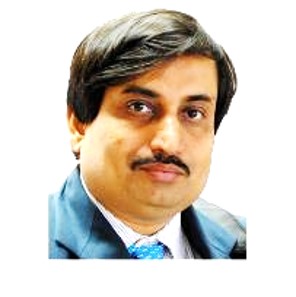
Dr. Asish K. Mukhopadhyay
Ph.D., FWAScT, FNASc, Scientist G (Director Grade Scientist), Division of Bacteriology, ICMR-National Institute for Research in Bacterial Infections (Formerly ICMR-NICED) Kolkata
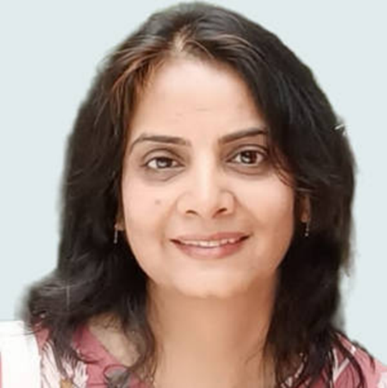
Dr. Shalini Dhyani
Principal Scientist, CSIR-National Environmental Engineering Research Institute, Nagpur

Prof. Dr. Habil. Leonard Atanase
Faculty of Medicine, "Apollonia" University of Iasi, Romania

Dr. Tae Seok Moon
Professor at J. Craig Venter Institute

Dr. Saumyabrata Mazumder
Senior Development Scientist , Beckman Coulter Life Sciences

Dr. Saugata Hazra
Associate Professor Department of Biosciences and Bioengineering Joint Faculty, Centre for Nanotechnology Indian Institute of Technology Roorkee (IITR)
Important Deadlines
| Submission of Full Paper: | 25th November 2025 |
| Submission of Abstract (Poster Presentation): | 25th November 2025 |
| Acceptance Notification: | 30th November 2025 |
| Early Bird Registration for Oral and Poster Presentation: | 1st December 2025 |
Previous Conferences
- BIOSPECTRUM 2022
- BIOSPECTRUM 2021
- BIOSPECTRUM 2020
- BIOSPECTRUM 2019
- BIOSPECTRUM 2018
- BIOSPECTRUM 2017
Search
Annoucements
- Best Paper Award
- Best Oral Presentation
- Best Poster Award
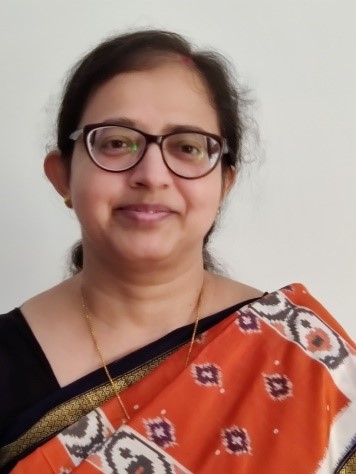
Prof. Suparna Mukherji
Head of the Sophisticated Analytical Instrumentation Facility (SAIF),
Centre for Research in Nanotechnology and Science (CRNTS) at IIT Bombay
Prof. Suparna Mukherji is the Head of the Sophisticated Analytical Instrumentation Facility (SAIF) and Centre for Research in Nanotechnology and Science (CRNTS) at IIT Bombay. She is Institute Chair Professor in the Environmental Science and Engineering Department (ESED) at IIT Bombay. After obtaining B.Tech. in Energy Engineering from IIT Kharagpur (1989), she obtained a MS in Civil and Environmental Engineering from Clarkson University (1991) and a Ph.D. in Environmental Engineering from The University of Michigan, Ann Arbor (1997). She was awarded the AICTE career award for young teachers, by AICTE in 2000 and the National Women Bioscientist Award (Young Category) by DBT, in 2009. Prof. Suparna Mukherji is a Fellow of the Indian National Academy of Engineering (INAE), and the Institution of Engineers, India (IEI). She is Associate Editor of Applied Nanoscience (Springer, since 2011) and Journal of the Institution of Engineers India (Series A) for Environmental Engineering (IEI and Springer, since 2017). Her research interests include bioremediation of oil spills and hazardous organic compounds; industrial wastewater treatment; monitoring of viruses and micropollutants in water and wastewater; application of nanomaterials for water treatment and monitoring and mitigation of environmental antimicrobial resistance.

Dr. Pranjal Chandra, PhD, FICS, MNASc, MRSC, M-INYAS
Associate Professor and Ramanujan Fellow
Fellow, Indian Chemical Society
Advisor: Biomedical Sensors Domain Systems
IET, London United Kingdom
Laboratory of Bio-Physio Sensors and Nanobioengineering
School of Biochemical Engineering
Indian Institute of Technology (BHU) Varanasi
Dr. Pranjal Chandra, PhD, FICS, MNASc, MRSC, M-INYAS is currently employed as Associate Professor at the School of Biochemical Engineering, Indian Institute of Technology (BHU), Varanasi, India. He earned his Ph.D. from Pusan National University, South Korea and did post-doctoral training at the Technion-Israel Institute of Technology, Israel. Dr. Chandra has over 10.0 years of Professional experience after his doctoral research. His research focus is highly interdisciplinary, spanning a wide range in biotechnology, nanobiosensors, biochemical diagnostics, material engineering for diverse applications etc. He is supervisor / co-supervisor of 13 PhD Students (5 Awarded AND 8 Ongoing), 2 DST National Post Doctoral Fellow (NPDF), 8 M.Tech / MS (Awarded), and several undergraduate / training students. His group has designed several commercially viable biosensing prototypes that can be operated for onsite analysis for diverse applications. He has published 15 books on various aspects of biosensors / diagnostics / Material Engineering from IET London; Springer Nature; CRC press USA and many books are in press / under preparation. He has Two International Patents (South Korea) and has authored over 140 journal articles / invited chapters in Top tier journals / books. Chandra's work has been greatly highlighted / featured in over 450 news agencies / media outlets globally (India, USA, London, Canada, Dublin, China, Malaysia, Singapore, China, Taiwan etc) including Chemistry World News Cambridge, London; Rajya Sabha TV ; DD Science ; NDTV ; News Nation ; The Hindu ; Times of India ; Science Trends USA ; Nature India ; Vigyan Prasar, DST Gov of India ; Global Medical Discovery, Canada ; Cover News in APBN Singapore ; Business Wire, Dublin etc. Work done by Chandra's team has also listed /covered / featured in the 12 Innovative Sensors Globally of all kinds in 2019 by: BUSINESS WIRE, London & Ireland; Associated Press, New York City, USA; Frost and Sullivan, Texas, United States etc. His work on "Smartphone Integrated Milk Testing Paper Sensor" has also received appreciation by the Honorable HRD MINISTER, Government of India, Dr. Ramesh Pokhriyal Nishank Ji
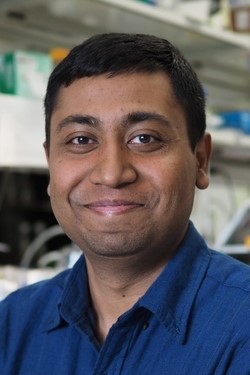
Dr. Debasis Das
Department of Biological Sciences, TATA Institute of Fundamental Research, Mumbai
Debasis Das is currently a Reader at Department of Biological Sciences, Tata Institute of Fundamental Research, Mumbai. He recieved his doctoral training with Dr. Chanchal K. Dasgupta at University of Calcutta. He went on to pursue a post doctoral fellowship at University of California, Berkeley (2013-2014) and University of Maryland (2014-2016) with Dr. Bryan A. Krantz. He was a research associate with Dr. Edwin R. Chapman at HHMI & University of Wisconsin, Madison (2016-2019) before starting his new lab at TIFR in September 2019.
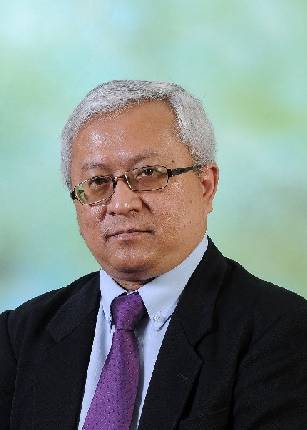
Professor Dr. Shaharum Shamsuddin,
Director,
Health Campus, Universiti Sains Malaysia
Shaharum Shamsuddin was born in Pulai Chondong, Kelantan in 1967 and received his primary education at SK Pulai Chondong and secondary education at SMK Abdul Samad Pulai Chondong and SMS Dungun, Terengganu. He obtained B. Appl. Sc (Biotechnology) from USM (1992) and MSc (Molecular Genetics) in 1996 from UPM. He completed his Doctorate in Molecular & Cellular Biology (D. Phil) from Dept of Biochemitry, University of Oxford, United Kingdom in 2002. Shaharum started his scientific career as a research officer at the National Animal Biotechnology Institute, Jerantut, Pahang in 1992. He was awarded Seri Cakerawala Award by Malaysian Veterinary Services in 1997 for his work on techniques for embryo sex determination in ruminants. In 2003, Shaharum joined Biomedicine Programme, School of Health Sciences, USM as a junior lecturer in 2003 and established Advance Molecular Biology Lab at the School. He was appointed as the Deputy Dean for Research & Innovation in 2007 and the Deputy Dean forIndustrial & Community Network in 2010. Shaharum was one of three Malaysian scientists selected for Nanotechnology Transfer Programme from Nanobiotix SA, Paris, France to INFORMM USM Penang (2008-2009). In 2015 he was appointed as chairman for Biomedical Science Programme and the coordinator for URICAS (USM-RIKEN International Centre for Ageing Science) in 2017 – 2020. He further established USIA (USM Initiatives on Ageing) in 2021 and was promoted to the Campus Director, USM Health Campus in July 2022. He is also a Senate member of USM (2017 – 2023) and an associate member of Malaysian Health Sciences Dean’s Council.
His fields of specialization are in molecular and cellular biology (gene regulation, protein-protein interaction and nanomedicine with research interests oriented towards tumor gene regulation, molecular mechanism of disease, epigenetics of ageing and molecular characterization of RNA viruses (focusing on Influenza A and SARS-CoV-2). Until now he already produced more than 15 postgraduate students (MSc/PhD). He has to his credit thirteen research grants completed as the Principal investigator. Shaharum is also an external evaluator for the promotion exercise of Associate Professor and Professor for premier Universities Nationally. He also being appointed as the external evaluator for Biomedical & Biotechnology based academic programmes/postgraduate examiners at the national level. He has 6666has been a consultant for various local agencies, reviewer of many scientific journals and has many publications in peer reviewed journals at the national & international level.
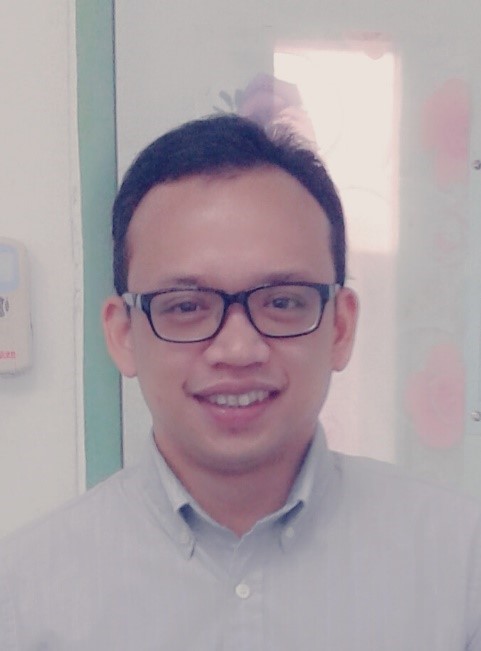
Assoc. Prof. Dr. Edinur Hisham Atan,
Edinur H. Atan is a lecturer of Forensic Science Programme at Universiti Sains Malaysia, Malaysia and Research Fellow of Australian Research Centre for Human Evolution at Griffith University. He did his MSc in Forensic Science at Universiti Sains Malaysia and PhD in Cell and Molecular Biology at Victoria University of Wellington, New Zealand. In 2013, he settled into his current teaching and research role at Universiti Sains Malaysia. He has strong research skills in forensics, molecular biology, genetics and bio-medicine, an impressive list of articles and books published by reputable publishers (e.g. Springer, Lancet, Nature, MDPI, PLOS, Frontiers etc.) and contacts in US, UK, Australia, New Zealand plus Malaysia and elsewhere in Europe, Africa and Middle East. He was selected to represent Malaysia for the APEC Science Prize for Innovation, Research and Education Prize in 2021 and appointed as an Associate of Academy of Sciences Malaysia in the same year. Each of the themes in his research programme has a strongly applied focus and has produced results to improve the technical and standard operating procedures in the DNA forensic laboratories of the Royal Malaysia Police and Ghana Police Service. His research findings have also been adopted by the New Zealand and local transfusion services in their policy making strategies. Currently, his research group is using the latest next generation sequencing platforms to sequence nuclear genomes from ancient remains of indigenous people unearth in Malaysia and Australia and from protected animal species in Peninsular Malaysia for wildlife conservation and protection purposes.
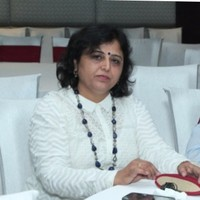
Dr. Anita Kapur
Country Head-Technical
Genaxy Scientific Pvt. Ltd.

Dr. Shalini Dhyani
Principal scientist at the CSIR-National Environment Engineering Research Institute, India
Important Deadlines
| Submission of Full Paper: | 25th November 2025 |
| Submission of Abstract (Poster Presentation): | 25th November 2025 |
| Acceptance Notification: | 30th November 2025 |
| Early Bird Registration for Oral and Poster Presentation: | 1st December 2025 |
Previous Conferences
- BIOSPECTRUM 2022
- BIOSPECTRUM 2021
- BIOSPECTRUM 2020
- BIOSPECTRUM 2019
- BIOSPECTRUM 2018
- BIOSPECTRUM 2017
Search
Annoucements
- Best Paper Award
- Best Oral Presentation
- Best Poster Award

